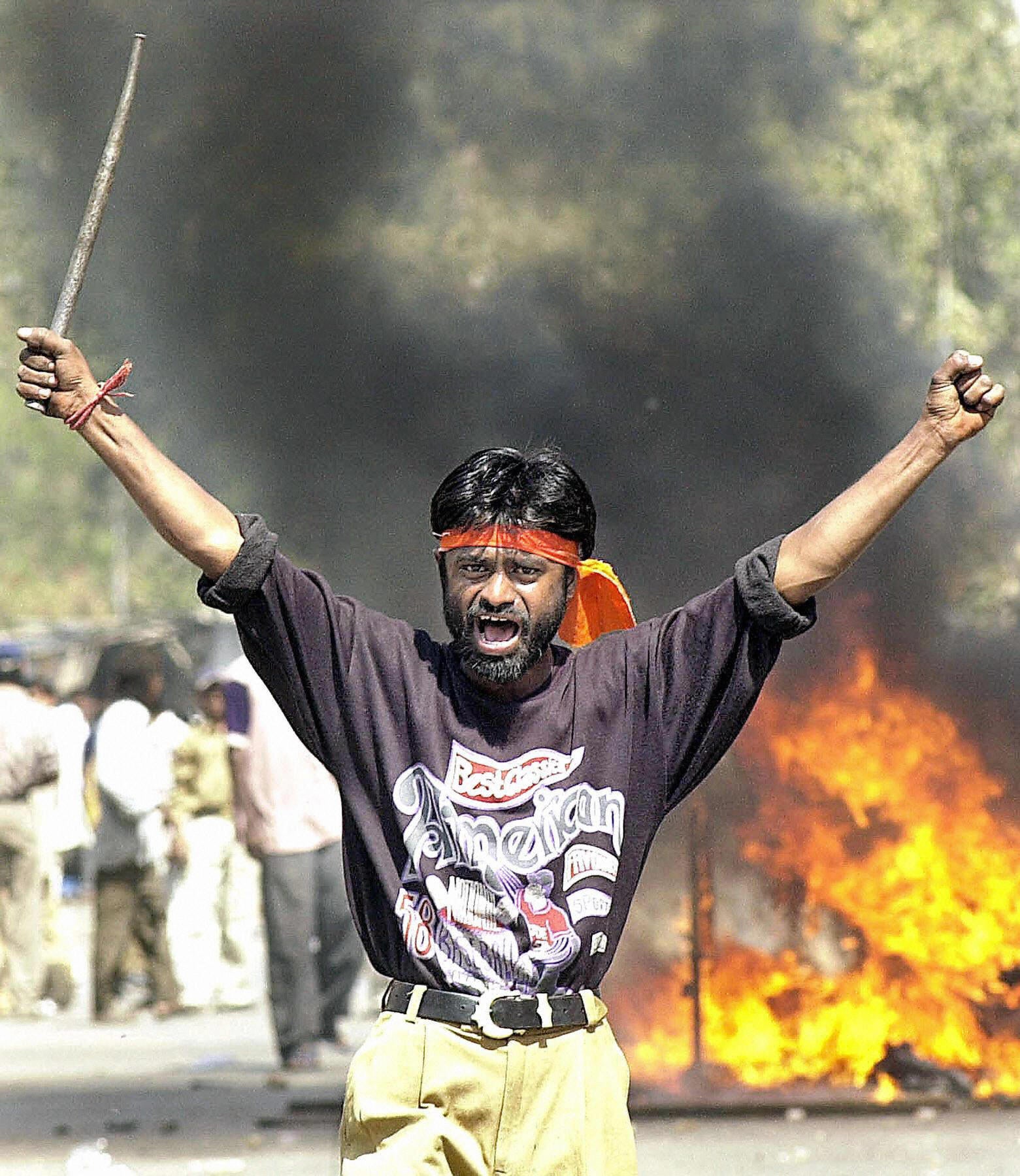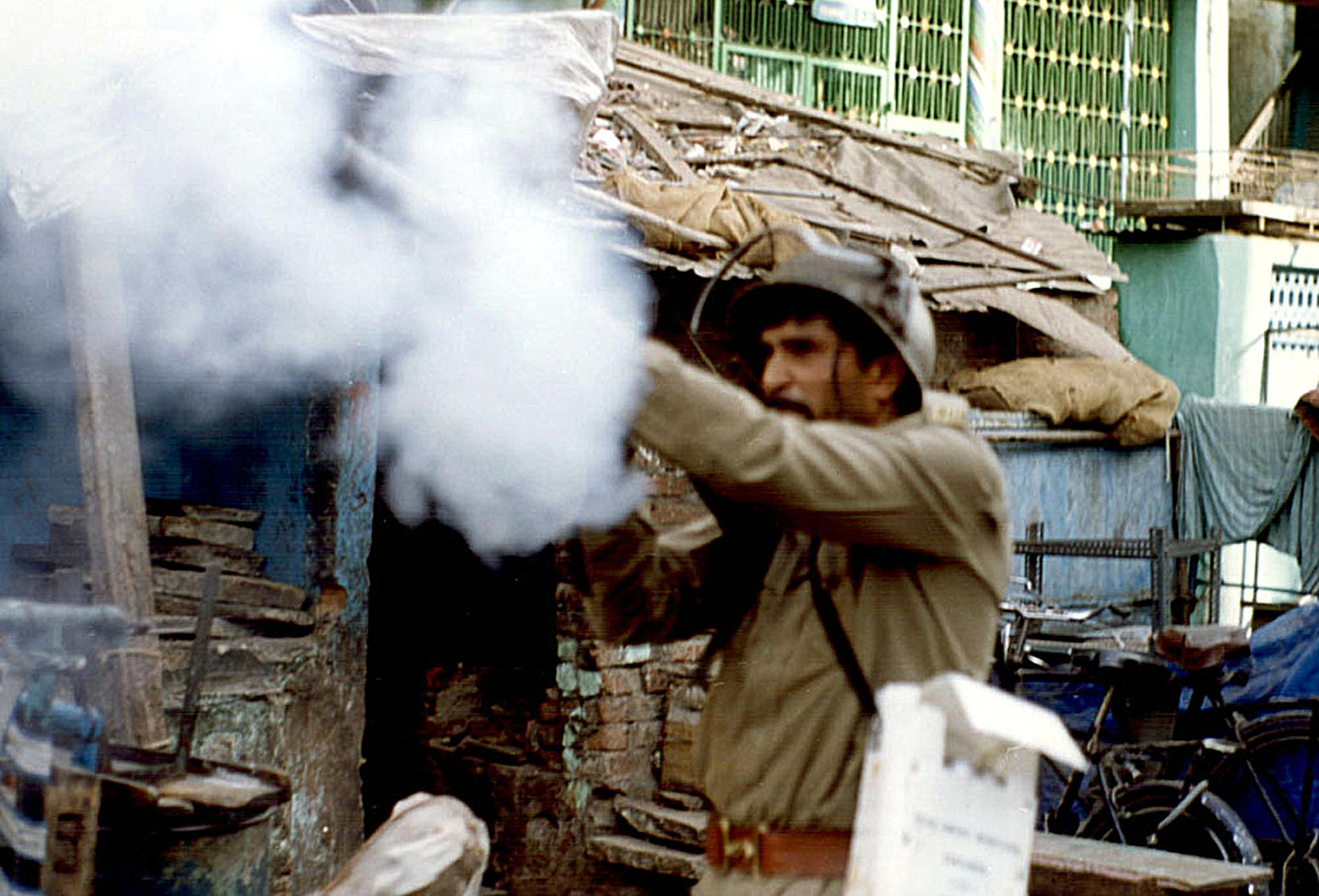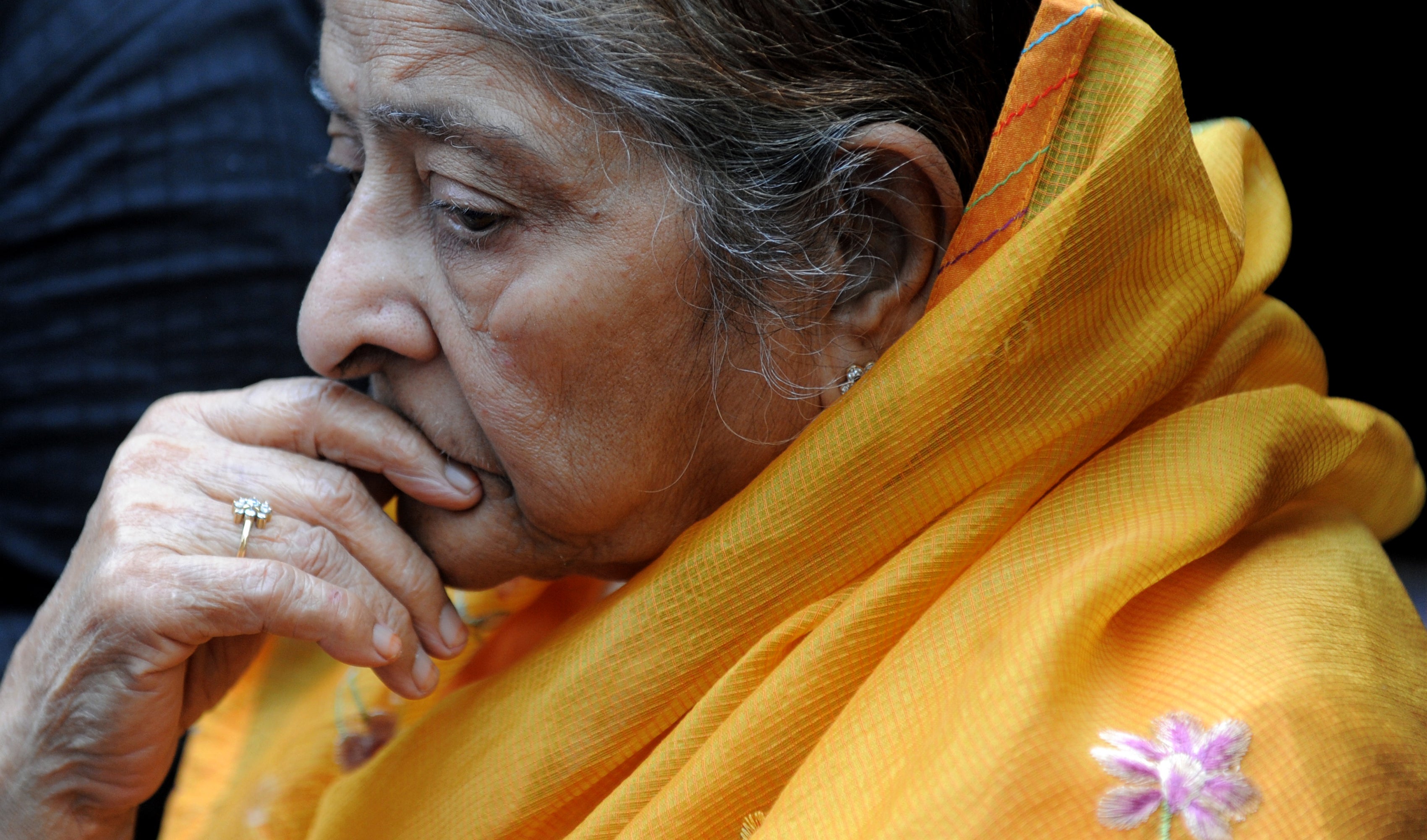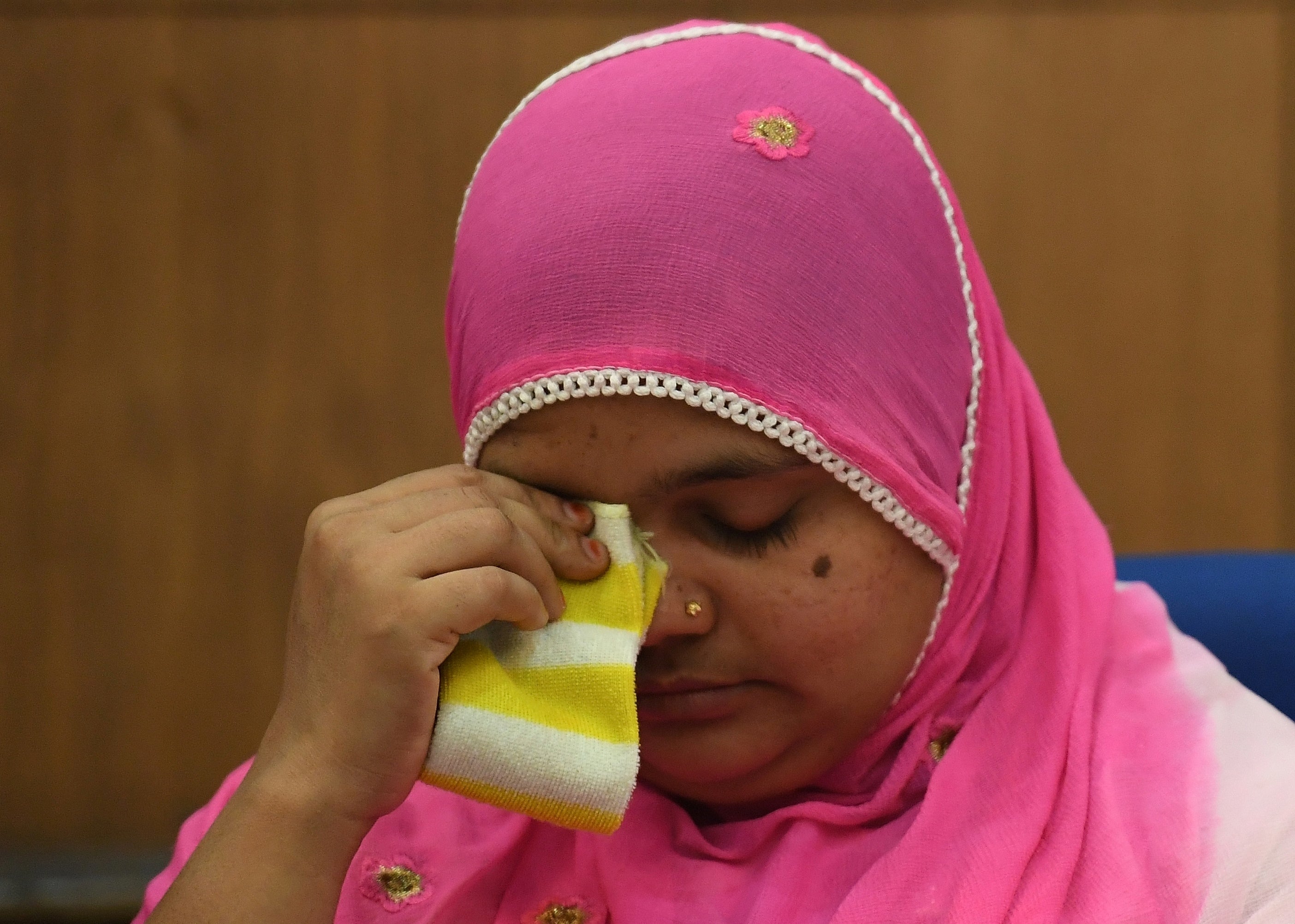Indian state withdraws protection of witnesses in 2002 Gujarat riots cases
Police protection was given to 131 people based on recommendation from court-appointed investigators
The Gujarat state government in India has revoked the security protection provided to witnesses, lawyers and a former judge in some of the most significant legal cases emerging from the country’s 2002 religious riots.
The Gujarat riots took place over 20 years ago after 59 people, mostly volunteers of Hindu organisations, were burnt alive inside a train that was set on fire at Godhra station by a suspected Muslim mob.
The Sabarmati Express massacre on 27 February 2002 led to retaliatory violence across the state on an unprecedented scale with deep social and political ramifications, irreversibly altering relations between India’s majority Hindu and minority Muslim communities.
While government figures state over 1,000 people were killed in the riots that followed, unofficial estimates indicate at least 2,000 people – mostly Muslims – were massacred, alonside scores of cases of rape and widespread looting and destruction of homes and properties.
Police and government officials were accused of directing the rioters and giving them a list of Muslim-owned properties, while India’s prime minister Narendra Modi – who was chief minister of Gujarat at the time – was accused of condoning the violence.
Suspicions that Mr Modi quietly supported the riots led the US, UK and EU to deny him a visa at the time, moves that were later reversed, while a committee appointed by India’s Supreme Court found there was “no prosecutable evidence” of complicity involving either Mr Modi or senior officials from his state government. Mr Modi has always denied any wrongdoing.

Nonetheless, the riots have remained a flashpoint for controversy in the years since, and more than 130 witnesses, lawyers and judges have been under police protection for more than 15 years on the reccommendation of the Supreme Court investigative committee.
They were involved in some of the most significant cases arising out of the riots, including the Naroda Patiya massacre in which 97 Muslims were killed by a mob of approximately 5,000 people, organised by the Bajrang Dal, a wing of the Vishwa Hindu Parishad, and allegedly supported by Mr Modi’s Bharatiya Janata Party.
In another massacre at Gulbarg Society, a Muslim neighbourhood near Ahmedabad, many houses were razed to the ground and at least 35 people, including former Congress MP Ehsan Jafri, were burnt alive. At least 31 others went missing after the incident and were later presumed dead, bringing the total deaths to 69.
"We have removed the security from witnesses after reviewing that there was no threat perception. None of them faced intimidation or assault," A K Malhotra from the Supreme Court-appointed Special Investigation Team (SIT) told the Deccan Herald.

The only exception has been made for Zakia Jafri, the widow of parliamentarian Jafri, belonging to the opposing Congress party, who will continue to receive witness protection.
She had filed a high-profile complaint against Mr Modi personally, which was finally rejected by the Supreme Court in 2022.
Among those losing their police protection was sessions judge Jyotsna Yagnik, who had convicted 32 people in the Naroda Patiya massacre. She received two layers of security cover after receiving threats on 18 separate occasions, reported The Times of India.

Expressing her distress over losing police protection, Farida Shaikh, 54, a witness in the Naroda Patiya riot case, says that she was informed about the withdrawal of her security cover on 26 December. “No reason was given to me," Ms Shaikh told the Press Trust of India.
"It has happened with many other witnesses. We are living in fear because many accused are still out and they can still harm us.”
The move comes as a series of cases pertaining to the riots collapsed in the Indian courts.
In April last year, a special court in Gujarat acquitted 68 people accused of being involved in the Naroda Patiya massacre. This followed the acquittal of 27 people accused of targeting 11 victims, burning them alive and raping a survivor.

The court in its order noted that 190 witnesses examined during the trial either “turned hostile”, had “not supported the prosecution’s case” or were “unable to recall facts or identify the accused”.
In January, 22 suspects accused of killing 17 people were acquitted due to lack of evidence in another city, Halol.
And in August 2022, 11 convicts serving life sentences for the gang-rape of pregnant Muslim woman Bilkis Bano and the murder of seven of her family members during the 2002 riots were released by the state government – sparking widespread furore.
In January last year, the BBC released a documentary examining Mr Modi’s alleged role in the 2002 riots.
The documentary series, titled India: The Modi Question, included a previously unpublished report from Britain’s Foreign Office at the time that held Mr Modi “directly responsible” for the “climate of impunity” that enabled the violence to take place.
Join our commenting forum
Join thought-provoking conversations, follow other Independent readers and see their replies
Comments
Bookmark popover
Removed from bookmarks